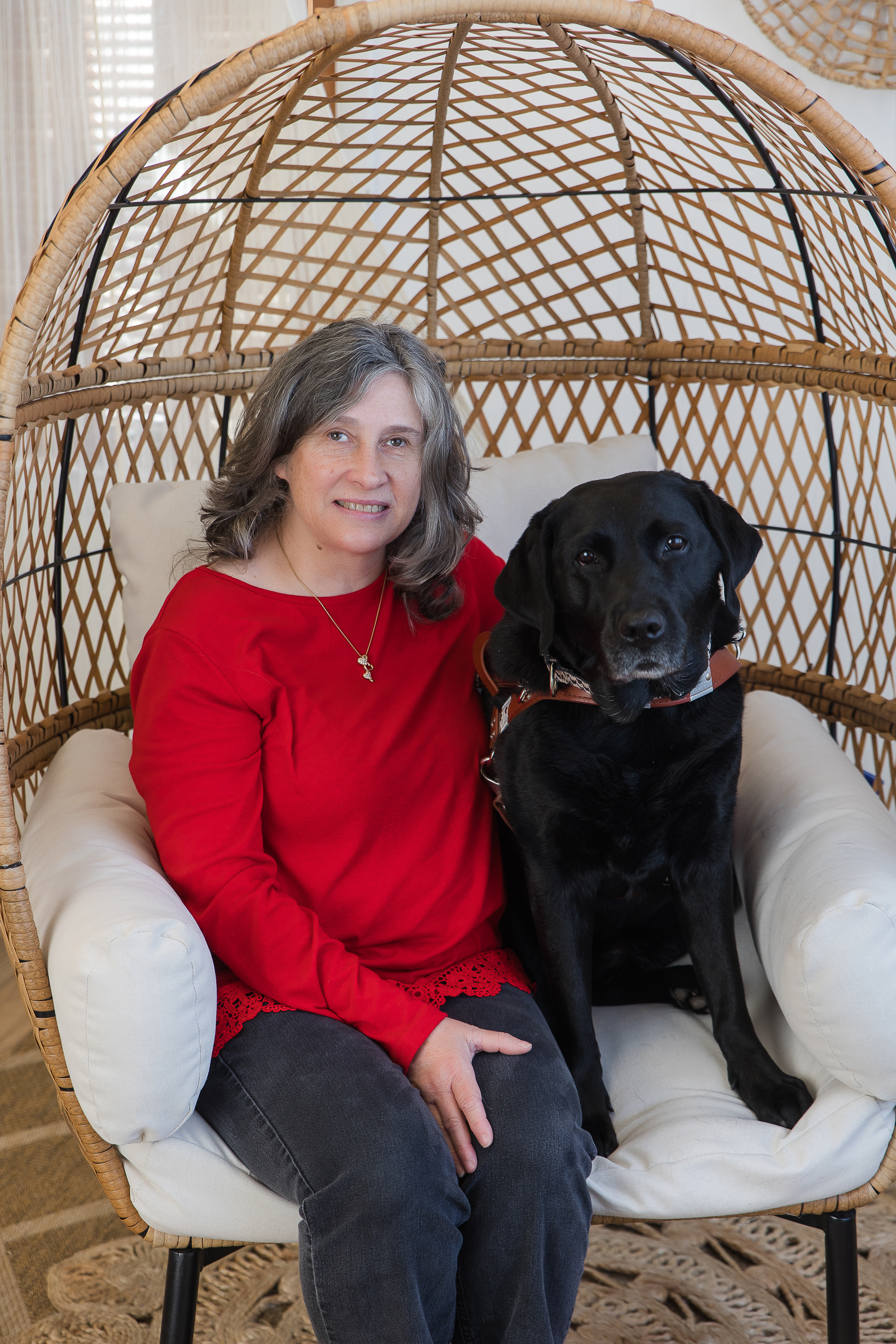
We can get to know God more intimately by understanding some of His names and using them as we pray. Which names do we want to know for the hard seasons of our lives?
I walked into the church with determined steps, careful not to turn quickly. The pastor’s family understood my back pain by my gait and the strong scent of some pain-relieving cream. “I need prayer.”
I was the speaker for the next day’s ladies' event. They gathered around me to pray. The pastor’s wife asked, “Why did you come here to pray over the seats? I could have done it alone.”
“No, Satan isn’t keeping me down. This is important to me.” After praying for me, the pastor’s wife and I began anointing the rows of chairs and praying over them. I felt some improvement when I returned home, and by the next day, the pain had subsided.
Jesus warned us that life will be peppered with tribulations. We will endure pain, both physical and emotional. We will cry out for healing, finances, and broken relationships. We will go through things we never wanted to endure. The question we need to answer is: how can we get through these tribulations as painlessly as possible?
Names don’t mean much today, but a name carried much weight in biblical times. Today, we name our children because we like the sound of the name or it holds a special place in our hearts. In Scripture, names told a story as they described a person’s character. For example, Abram meant “exalted father,” until God changed his name to Abraham, meaning “father of a multitude.”
We can get to know God more intimately by understanding some of His names and using them as we pray. Which names do we want to know for the hard seasons of our lives?
Jehovah: The Relational God
God said to Moses, “I am who I am. This is what you are to say to the Israelites: ‘I am has sent me to you.’” God also said to Moses, “Say to the Israelites ‘The Lord, the God of your fathers—the God of Abraham, the God of Isaac and the God of Jacob—has sent me to you.’ “This is my name forever the name you shall call me from generation to generation." (Exodus 3:14-15 NIV)
We know this name well, even though we might not understand the depth of its meaning. We find Jehovah 6519 times in the Old Testament. Jews hold this name so sacred that they refuse to speak it. Originally, this name consisted of four consonants: YHWH. Later, the vowels were added to get Yahweh. Whenever we see “LORD” or “GOD” in all caps in the Bible, it refers to YHWH.
Jehovah isn’t a far-off god, nor is He a dead god in a tomb. He wants to reveal Himself to us, and sometimes He accomplishes that through trials. Have you ever progressed through an extremely rough time, but once the trial ended, you realized you knew God better? Jehovah revealed Himself to you in a way you had previously not known Him.
God wants us to know Him better than we do. We get busy with life’s responsibilities and time slips away. Our hearts desire to know God, but we fall short.
Why did God use this name when Moses talked with Him from the burning bush? Moses felt inadequate to carry out God’s plan for him to approach Pharaoh on behalf of his people. He didn’t expect the Israelites to believe him either. He wanted a name to use as verification that Moses had been truly sent by God to free the people.
As we pray to Jehovah, this name can remind us not only of God’s great love for us but since He is self-existent, He knows no time barriers. Our uncertain future frightens us. We don’t know what it holds, whether it’s the doctor’s report or a long-awaited answer to prayer. But God knows already. He has been in our future, and He knows the outcome. That’s who we are calling on and communing with.
Jehovah Jireh: The Lord Will Provide
Abraham looked up and there, in a thicket, he saw a ram caught by its horns. He went over and took the ram and sacrificed it as a burnt offering instead of his son. So Abraham called that place The Lord Will Provide. And to this day it is said, “On the mountain of the Lord it will be provided.” (Genesis 22:13-14 NIV)
Abraham endured one of the hardest tests anyone has ever known. God told him to sacrifice his only son, Isaac. This went against God’s character. Sarah and Abraham had waited over twenty-five years for Isaac to be born. How would Abraham be a father to many descendants if he killed his only son?
As we read through the passage in Genesis 20:2, we never see Abraham bargaining with God. He moves forward with the request. At the last second, when Abraham has his knife raised above his son, God speaks, stopping Abraham. Then, Abraham hears a ram caught in the thicket. Abraham uses the ram for the sacrifice, instead of Isaac.
We see God’s provision daily in the little things: a sale on hamburger meat, a bill that’s mysteriously lower than expected, or a raise at work. These provisions seem small when compared to a ram that took the place of Isaac.
As we navigate troubling times, we have needs: financial needs, medical needs, or relationship needs. We can pray to Jehovah Jireh, The Lord Will Provide. It’s a compound name with Jehovah, meaning that God wants to relate to us as our Provider, and He wants us to depend on Him for our needs.
Jehovah Rapha: The Lord Who Heals
He said, “If you listen carefully to the Lord your God and do what is right in his eyes, if you pay attention to his commands and keep all his decrees, I will not bring on you any of the diseases I brought on the Egyptians, for I am the Lord, who heals you.” (Exodus 15:26 NIV)
Once again, this name came out of a test. God had parted the waters of the Red Sea. The Israelites had praised the Lord for delivering them from Pharaoh’s army. But three days later, they resorted to complaining. They saw no water after crossing the Red Sea until they reached Marah, where they found polluted water, bitter to the taste.
Had they forgotten the miracle three days earlier? They failed God’s test. Moses cried out to God when they complained against him, and God instructed Moses to throw a stick into the water which made the water drinkable.
That’s when God revealed Himself as their Healer. The impure waters of Marah could have made them deathly sick, but as their Healer, God became the first water purification system in history.
Most of our troubling times include illness. We will need to know Jehovah Rapha throughout life.
Jehovah Shalom: The Lord is Peace
"So Gideon built an altar to the Lord there and called it The Lord Is Peace. To this day it stands in Ophrah of the Abiezrites." (Judges 6:24 NIV)
In the book of Judges, Israel turned to idols, much like we turn to money or image. God removed His hand of protection and allowed Israel’s enemy, the Midianites, to attack, conquer, and devastate their land for seven years.
Israel repented, crying out to God. While Gideon hid his wheat in his wine press, the angel of the Lord came to visit him.
God chose Gideon to deliver Israel from Midian, but Gideon didn’t understand why God would choose a simple man like him. He sought proof that he was genuinely speaking to the angel of the Lord. So, Gideon prepared a meal for an offering and brought it to the angel of the Lord. He touched the offering with the tip of his staff, and fire consumed the food. The angel of the Lord vanished, and Gideon knew he had seen the angel of the Lord face-to-face. Then God spoke peace to Gideon, and he built an altar there.
Notice that Gideon had peace before he had victory over the Midianites. When we pray, seldom do we see immediate change. The one thing that does change by the time we say "Amen" is our mindset. That prayer might not result in a prompt relief, but it does result in peace.
What are the Midianites in your life? No matter what type of trial you face today, the one thing we all desire in hard seasons is peace. Trials stir up fear, worry, and pain, but when we pray to Jehovah Shalom and focus on Him rather than the problem, God will renew our minds with His peace. When we overcome the strongholds of our emotional rollercoasters by setting our minds on the Spirit (Rom. 8:5-6), peace moves in.
El Elyon: The Most High God
But Abram said to the king of Sodom, “With raised hand I have sworn an oath to the Lord, God Most High, Creator of heaven and earth, that I will accept nothing belonging to you, not even a thread or the strap of a sandal, so that you will never be able to say, ‘I made Abram rich.’" (Genesis 14:22-23 NIV)
Genesis 14 opens with many kings at war with one another. In the midst of their battles, Abram’s (Abraham's) nephew Lot was kidnapped. When Abram learned of this, he gathered his men, and they went on a rescue mission. Abram returned with Lot plus all the other citizens of Sodom and their goods.
The king of Sodom came to meet Abram, seeking to exchange the people for the goods Abram had retrieved, but Abram refused to give the glory of El Elyon to an earthly king. This victory belonged to God.
El Elyon is a compound name using Elohim, meaning Creator, and Elyon, meaning the most exalted. As we look at current events, dread and worry can invade our hearts, but El Elyon is higher than anything or anyone on earth. Our government can’t solve the problems of inflation and school shootings, but El Elyon reigns over all the world governments. He is higher than our employers, doctors, and lawyers.
When we pray to El Elyon we seek Him as our source for everything we need. Jobs may end and prices may soar, but El Elyon has total control of it all.
These names of God reflect love, provision, healing, peace, and power. My prayer for you, friend, is that you will begin using these names of God to enhance your prayer life and find serenity for your soul.
Photo Credit: ©iStock/Getty Images Plus/hsiangwent










